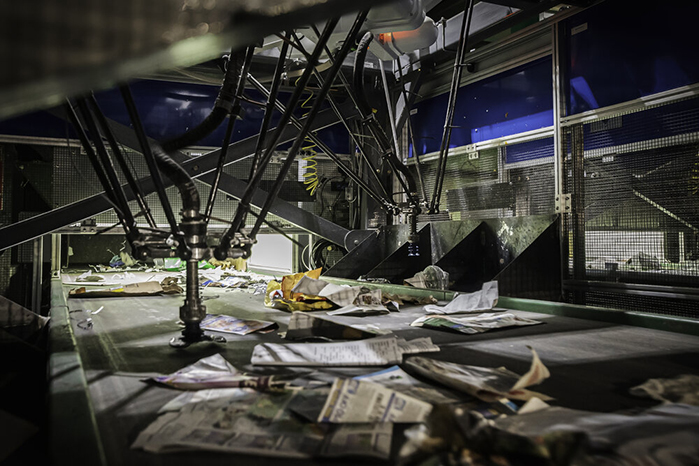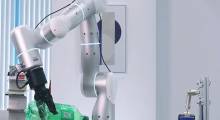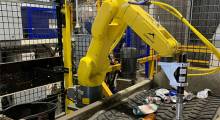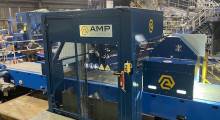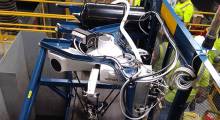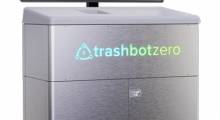AMP Robotics Corp., a recycling robotics manufacturer, has extended its partnership with Evergreen, a producer of recycled polyethylene terephthalate, or rPET.
Evergreen, which has grown through acquisitions to four locations across North America from its original facility in Clyde, Ohio, now has 15 of AMP’s robotic sorting systems guided by artificial intelligence installed or planned across three facilities.
In addition to six robots in Clyde, Evergreen has added six in Riverside, Calif., and will soon add three in Albany, N.Y.
AMP’s robots speed up sorting
AMP Robotics was founded in 2015 and is based in Louisville, Colo. The company claimed that its technology identifies and sorts green and clear polyethylene terephthalate (PET) from post-consumer bales of plastic soft drink bottles at speeds up to three times faster and at a higher accuracy than manual sorters can achieve.
Evergreen then recycles the material into reusable flakes or pellets, which it sells to end markets as feedstock for new containers and packaging.

“Evergreen is a leader in the transformation of recycling processes, and its application of AI-guided sortation is increasing plastic recycling rates and helping to close the loop on PET,” said Matanya Horowitz, founder and CEO of AMP Robotics.
“Evergreen’s repeat orders of our systems is a testament to the operational benefits of our AI and automation solutions, and we’re proud to play a role in the company’s expansion and modernization efforts,” he added.
With AMP’s robots focused on refining the quality of material, separating plastics more precisely by color, Evergreen has seen a notable improvement in purity along with pick rates of up to 120 bottles per minute—an increase of up to 200%. The robots are removing up to 90% of contamination, on average, across different lines at Evergreen’s Clyde facility.
Evergreen hits new benchmarks
Thanks to its expansion and infrastructure investments, Evergreen’s annual capacity of rPET has swelled to more than 147 million pounds, up from 40 million pounds one year ago. Evergreen has also increased the number of post-consumer PET bottles it collects and recycles, from 2 billion PET bottles annually to 11.6 billion bottles.
“As a leader in the transition to recycled PET from virgin resin, the precision and accuracy of AI-enabled robotics has allowed us to better monitor material composition throughout our operation, increase capture, and ensure high quality in the rPET resin we produce,” said Greg Johnson, Evergreen general manager. “We want to recover all we can, and with AMP’s technology, we are thereby helping to supply a higher-quality end product and a larger volume of recycled plastic for brands to source for their recycled content goals and sustainability commitments.”
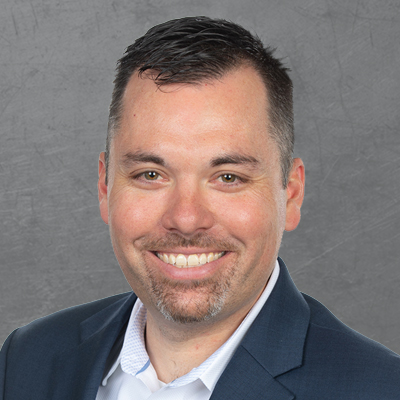
In addition to PET, AMP’s AI platform precisely identifies and captures plastics including high-density polyethylene (HDPE), low-density polyethylene (LDPE), polypropylene (PP), and polystyrene (PS), sorted further by color, clarity, and opacity, along with different form factors—lids, tubs, clamshells, cups, and more.
AMP’s technology also recovers cardboard, paper, cans, cartons, and many other containers and packaging types reclaimed for raw material processing.
It can quickly adapt to container packaging introduced into the recycling stream with recognition capabilities to the brand level. This is increasingly critical as demand for sufficient quantities of high-quality recycled material grows to meet consumer packaged goods companies’ commitment to use post-consumer recycled content, according to AMP Robotics.
AMP and Evergreen to be featured at Plastics Recycling Conference
AMP has nearly 200 deployments in more than 80 facilities across three continents. Both AMP and Evergreen are sponsoring, exhibiting, and speaking at this week’s Plastics Recycling Conference, which described itself as North America’s largest gathering of plastics recycling and sustainability professionals.
Johnson will participate on a March 8 panel about how funding from the investment community has reshaped the plastics processing landscape, helping stakeholders meet end-consumer demand for sustainable products.
On March 9, Chris Wirth, AMP’s vice president of marketing and government affairs, is moderating a session about recyclability labeling at the event.
Article topics
Email Sign Up

